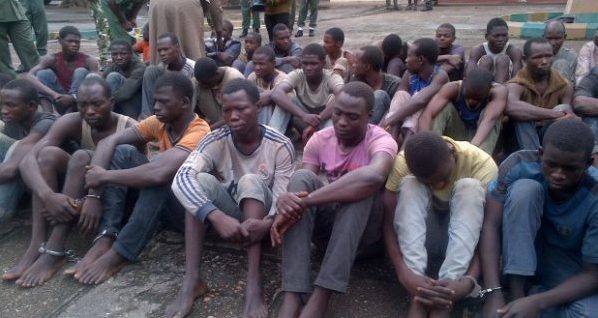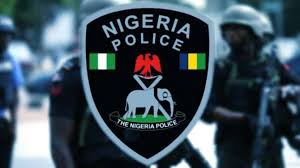Some hundreds of Boko Haram suspects were docked in Kainji, in central Nigeria on Monday, in the second phase of trials of 1669 detainees.
The trial, being conducted by four judges, is inside a military formation in the town, by the side of River Niger.
The suspects are allowed the services of lawyers, and those who could not afford lawyers of their own, were supplied lawyers from legal aid.
The Kainji trial followed the first set of trials done on 9 October 2017, in collaboration between the Federal Ministry of Justice and the Office of the National Security Adviser (ONSA).
The Federal Ministry of Justice said the suspects were being tried in open court, to stave off criticisms on the first trial of more than 1,000 suspects, done in secret.
“Unlike the first phase which was restricted, this phase is opened with some civil society groups, including human rights organisations and journalists invited to witness the proceedings,” the ministry added in a statement.
There were, however, no independent reports yet from journalists, except the statement issued by Comrade Salihu Othman Isah, Special Adviser on the media, to the Attorney-General and Justice Minister, Abubakar Malami.
Isah said the resumption of trial arose from the conclusion of investigation of over one thousand suspects by the AGF as ordered by the court during its proceedings of October 2017.
Suspects with prima facie cases are being prosecuted, while others without lacking any solid link to Boko Haram would be discharged.
Those discharged will undergo a process of deradicalisation from the Office of the National Security Adviser (ONSA) before their final release to their various families.
Already, about 82 Boko Haram detainees have so far benefited from the Federal Government window to plead guilty to secure low jail terms or unconditional release which is part of President Muhammadu Buhari administration’s concerted effort to boost its human right records and decongest the nation’s prisons.
As a result, about 45 convictions have also been pronounced by the trial judges in the four syndicated courts established by then acting Chief Judge of the Federal High Court, Abuja, Justice Abdu Kafarati.
The various Boko Haram suspects were sentenced to jail terms ranging from two years to fifteen years and with most of them backdated to the date of their detention.
There are four categories of suspects at the Kainji detention facility who are classified as Boko Haram suspects who were hitherto investigated by the Joint Investigation Team set up by the Defence Headquarters.
The first category consists of suspects, who investigators could not establish any solid evidence against.
As a result, they were recommended for release and handed over to the Office of the National Security Adviser (ONSA) for rehabilitation and de-radicalisation.
The second category of suspects have been charged at the Federal High Court, Abuja Division.
Most of them are at the Kainji detention facility and may be willing to plead guilty for lesser sentences.
The third category are the suspects whose case files are either recommended for further investigation or that have no investigation conducted on them at all.
The fourth category is that of the suspects whose cases were reviewed and a prima facie were found and may be willing to opt for a full trial.
Some of the 468 suspects are to be discharged for lack of evidence and be engaged in the Federal Government De-radicalisation Programme through the Office of the National Security Adviser (ONSA) out of the 1669 that are in Kainji detention facility.











